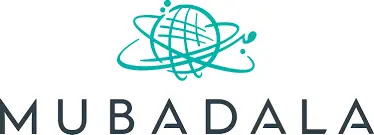While the World Cup takes centre stage in Qatar, another Middle Eastern country is attempting to create a legacy that will last long after the final whistle has been blown.
Over the last decade, the UAE has attracted a Cleveland Clinic hospital expansion, a Mayo Clinic cooperation, millions of dollars in technology and healthcare investments, and, most recently, a partnership with San Francisco-based Innovaccer, a data aggregation software business.
The UAE's developing, and more international, medical infrastructure is represented by a succession of strategic alliances and investments. Experts attribute this interest to two opposing trends.
"The population and demand mix that they're developing is number one," said Ali Ustun, a partner in McKinsey's Middle East office. Ustun signifies that there are a lot of Western expats in the country's health-care system.
"I believe number two is in terms of finance availability. "I would say that across the board, we are seeing more tech-focused investments in startups picking up in the UAE," Ustun added.
Mubadala, an Abu Dhabi-based state-owned business that operates as a sovereign wealth fund and consists of two financial companies, is responsible for many of the country's digital health investments. Mubadala's two financial institutions have invested more than $1.5 billion in digital health companies since 2018, according to Digital Health Business & Technology's investor database.
Mubadala Investment Company is a state-owned, sovereign investor with assets in the UAE and elsewhere. According to the company's website, it manages $284 billion in US assets across many sectors, including healthcare and technology. Typically, investments are made to help initiatives in the UAE.
Mubadala Investment Company is a state-owned sovereign investment firm having holdings in the United Arab Emirates and worldwide. According to the company's website, it manages $284 billion in assets in the United States across a variety of industries, including healthcare and technology. Typically, investments are provided to support UAE activities.
Mubadala Capital led Innovaccer's $150 million Series E investment last year and recently joined in the $140 million Series B funding round for value-based primary care services and technology startup UpStream.
"We are in the business of investing in family businesses. That's what we're looking for," Alaa Halawa, Mubadala Capital's executive director and head of US initiatives, said.
Halawa distinguished cash deployments from Mubadala Capital's venture initiatives from those made by its parent investment firm.
"Bringing these enterprises to the UAE is not a [key performance indicator] for us. That's not what we're doing," Halawa said, adding that Mubadala Capital's team is focused on returns. "If we find that transferring these companies overseas will be detrimental to these companies, we will not do it because, at the end of the day, I want to have a profitable investment."
However, there are times when the investments pay off for everyone. In these circumstances, Mubadala can provide something that most US-based funds cannot: Gaining entry into the Middle Eastern market.
Considering the entire Middle East -
The Innovaccer agreement in Abu Dhabi, announced earlier this fall, enables the digital health unicorn to deploy its algorithms in the country's health system, which mixes a government-funded health system with a fast expanding private market.
According to Dr. Rakesh Suri, who was instrumental in establishing Cleveland Clinic's presence in the country in 2013, the combination of public and private providers has created a collaborative environment not generally seen in the United States.
"For example, in Abu Dhabi, we collaborated with the Department of Health and other hospitals and clinics to participate in a health care exchange, where medical records are shared across all providers," said Suri, who left Cleveland Clinic in September to work for a platform firm. "We'd be able to determine a patient's past medical history [and] present medical condition regardless of which clinic or hospital they entered."
While Gupta did not go into detail about Innovaccer's cooperation with the UAE, he did say the company will use it as a base for future growth in the Middle East. Innovaccer intends to hire roughly 30 people for its fledgling company there. The company is collaborating with the Abu Dhabi Investment Office.
The UAE is not the only Middle Eastern country attempting to make inroads into the digital health industry. In July, the Kingdom of Saudi Arabia announced an agreement with the diabetic artificial intelligence business Digital Diagnostics. According to John Bertrand, CEO of Digital Diagnostics, the Middle East has a lot of potential as a digital health hub because governments are building a more greenfield system than the United States.
"They don't have 75 years of policy on top of policy," Bertrand explained. "They're practically operating in a corporate setting where they look at the overall picture of how their systems function, rearrange them all at once, and then that's the new way ahead."
Ustun co-authored a paper earlier this year forecasting that the overall digital market in the Kingdom of Saudi Arabia and the United Arab Emirates would reach $4 billion by 2026. He stated that both of these countries are attempting to cut healthcare spending due to the unpredictability of natural resource markets. Both Saudi Arabia and the United Arab Emirates are major oil producers.
"These countries are bringing in all kinds of new opportunities, not only revenue potential for investors, but also big system level savings," Ustun explained.
The UAE is not alone in facing competition in developing an international-focused digital health ecosystem. According to Ustun, India has a lot of potential because it has a large pool of tech expertise and an underserved patient population.
According to Halawa, the UAE has an advantage because its leaders are looking ahead in ways that other countries in the area are not.
"The country's leaders' ambition is ambitious and at the forefront of innovation and disruption," Halawa remarked. "It's a vision predicated on firmly held basic principles that allows them to make these incredibly substantial bets in healthcare for our portion of the world."











